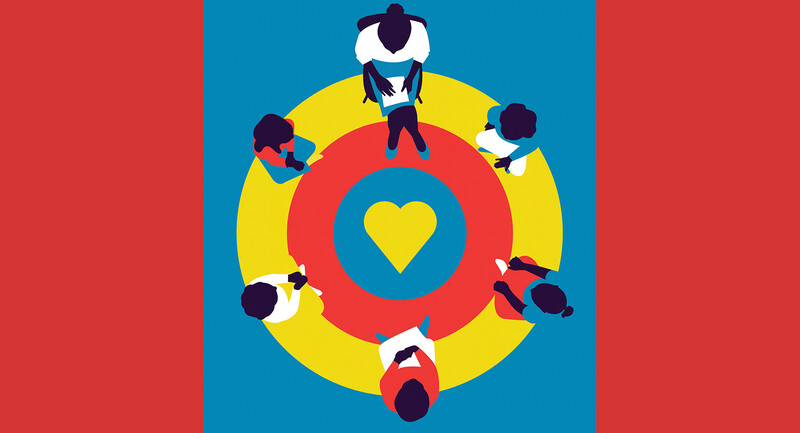Like most ideas, the concept of resilience can sometimes be used to oppress. For instance, I've heard messages—in popular culture, the corporate realm, and the education world—that shift the burden of ending systemic injustice onto marginalized people, such as "If you were more resilient, racism wouldn't really bother you." Sadly, people giving these types of messages have corrupted the concept of resilience. And resilience is a powerful tool, one that educators, in particular, are in need of. When corruption of a concept occurs, it can be tempting to abandon that concept or term. But doing so wouldn't solve the problems of inequity and racism we need to attend to in this country. Because the problem isn't the word resilience.
The bigger problem of how we in the U.S. talk about resilience has many related parts. A large part of the problem lies in the conditions that often accompany capitalism, such as an economic reality that's increasingly difficult for most people. Another aspect is that many people don't want to deal with deep pain and suffering, or with historical and contemporary injustice. There's also the great difficulty we have in listening to each other, combined with our desire for a quick fix on a complex issue. Often the problem is toxic positivity, the repression of uncomfortable emotions and the insistence that we all maintain positive attitudes. Another less than ideal reality that gets in the way of work toward equity is the speed and pace at which we live, and our compulsion to distract ourselves. This can include even our inherent (and healthy) desire for social connection, which can lead to missteps in seeking nourishing connections.
Many of us don't know how to respond to our own—or other people's—anger and fear. But the word resilience is not the problem.
I believe that, at the root, the problem behind messages that warp the meaning of resilience is that many of us don't know how to respond to our own—or other people's—anger and fear. But the word resilience is not the problem.
How to Talk "Resilience" in a Productive Way
I'm committed to supporting educators in cultivating their own resilience—and I've chosen to use that term. So what if, like me, you want to keep using the word resilience and be sure you're not minimizing real pain or demanding positivity? Here are some suggestions:
- When you use the term, define it in a way that prevents unhelpful interpretations. I usually say, "Resilience is our ability to emerge from a difficult experience stronger than we were before—having learned something about ourselves, having strengthened connections with others, having more resources to respond to the inevitable challenges of life. Resilience is our ability to thrive and not just survive. It's cultivated through things we do and things we think. We're all resilient, and we can become more resilient."
- Don't avoid the hard stuff. Make space for talking about pain and suffering even as you promote resilience. Ask about people's pain and serious problems, and honor that pain.
- Acknowledge collective pain and the need for collective strength. Humans are experiencing many social and global crises now; entire communities are suffering. We need to be thinking about, talking about, and building communal resilience. Resilience can be built by individuals, but many problems we face are systemic and affect millions of people.
- Advocate for social, political, and economic change. In my book Onward, I discuss the three areas we must speak about whenever we talk about resilience, especially in education contexts: (1) individual resilience, (2) organizational conditions, and (3) systemic conditions. I note that:
We must address the macro, political, and economic context of our education system. Teachers must be paid more, and they must be treated as people who can think and who can learn. … We must address the racism, classism, and sexism that exists in our institutions, including in our schools. We'll need to talk about testing and publishing scores and performance pay. Until we dig down into the structural and system roots of the dysfunctions in our education system, we'll still see high levels of teacher turnover. … [We] need to talk about capitalism and the legacy of colonialism and property taxes [etc.] … . We must have these conversations [because] our resilience and well-being are connected to them. (p. 6)
I've been talking about educator resilience for over a decade, and I've never disconnected individual social-emotional needs from our socio-political context. Doing so would compartmentalize pain in a way that would corrupt the word resilience.
A Few "Don'ts" and One Essential "Do"
Here are three "don'ts" to help you talk about resilience without sounding critical—or even oppressive:
- Don't tell other people they need to build their resilience. It can sound patronizing and arrogant. You might coach someone into an awareness that they would benefit from developing skills that would enhance their resilience, but don't say what I heard one principal say to his assistant: "If you had more resilience, you would get your work done on time."
- Don't conflate resilience with survival. It's a different thing. Inherent in resilience is a greater capacity to thrive. As we become more resilient, we learn and understand ourselves and others better, we have healthier relationships, and we find more joy in life. This isn't always the case when we simply survive adversity.
- Don't blame or shame people (even in your thoughts) for not being more resilient. Some people experience tremendous adversity and don't emerge stronger than they were before. Realize that these folks did the best they could with the cards they were handed in the place and time in which they lived. If their actions harmed you, grieve that harm and explore your own sadness and anger.
So what should you do when it comes to thinking and talking about resilience? One essential thing is to focus on understanding yourself and cultivating your own resilience. You can't coach others in what you don't know or haven't explored. Before going out to guide others in developing their resilience, you need—and deserve—to shore up your own, so you have the knowledge, insight, and strength for the demanding work of leadership.









